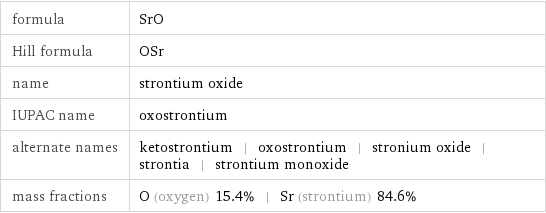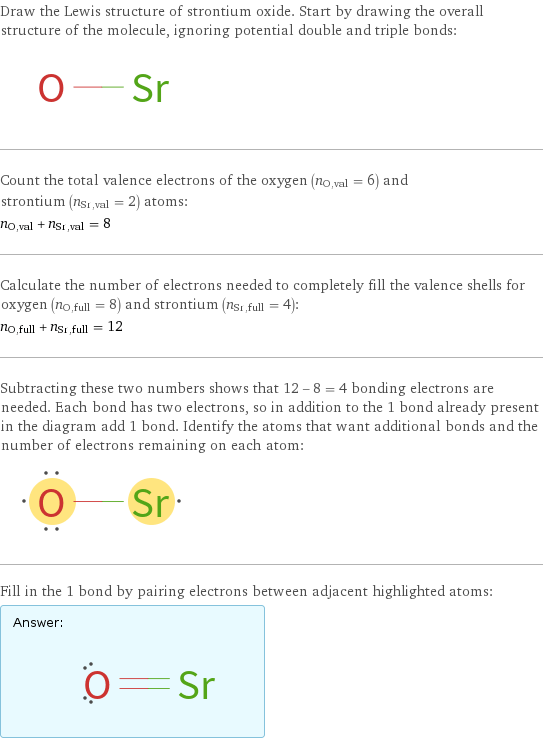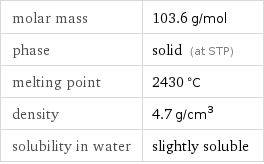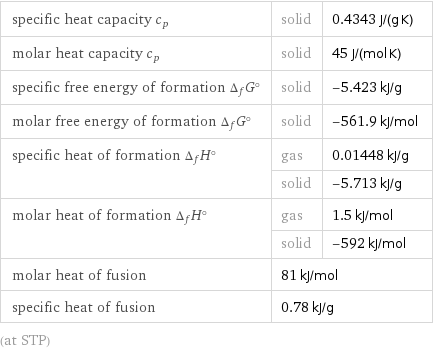Input interpretation

strontium oxide
Chemical names and formulas

formula | SrO Hill formula | OSr name | strontium oxide IUPAC name | oxostrontium alternate names | ketostrontium | oxostrontium | stronium oxide | strontia | strontium monoxide mass fractions | O (oxygen) 15.4% | Sr (strontium) 84.6%
Lewis structure

Draw the Lewis structure of strontium oxide. Start by drawing the overall structure of the molecule, ignoring potential double and triple bonds: Count the total valence electrons of the oxygen (n_O, val = 6) and strontium (n_Sr, val = 2) atoms: n_O, val + n_Sr, val = 8 Calculate the number of electrons needed to completely fill the valence shells for oxygen (n_O, full = 8) and strontium (n_Sr, full = 4): n_O, full + n_Sr, full = 12 Subtracting these two numbers shows that 12 - 8 = 4 bonding electrons are needed. Each bond has two electrons, so in addition to the 1 bond already present in the diagram add 1 bond. Identify the atoms that want additional bonds and the number of electrons remaining on each atom: Fill in the 1 bond by pairing electrons between adjacent highlighted atoms: Answer: | |
Basic properties

molar mass | 103.6 g/mol phase | solid (at STP) melting point | 2430 °C density | 4.7 g/cm^3 solubility in water | slightly soluble
Units

Solid properties (at STP)

density | 4.7 g/cm^3
Units

Thermodynamic properties

specific heat capacity c_p | solid | 0.4343 J/(g K) molar heat capacity c_p | solid | 45 J/(mol K) specific free energy of formation Δ_fG° | solid | -5.423 kJ/g molar free energy of formation Δ_fG° | solid | -561.9 kJ/mol specific heat of formation Δ_fH° | gas | 0.01448 kJ/g | solid | -5.713 kJ/g molar heat of formation Δ_fH° | gas | 1.5 kJ/mol | solid | -592 kJ/mol molar heat of fusion | 81 kJ/mol | specific heat of fusion | 0.78 kJ/g | (at STP)
Chemical identifiers
![CAS number | 1314-11-0 PubChem CID number | 518709 PubChem SID number | 24865977 SMILES identifier | O=[Sr] InChI identifier | InChI=1/O.Sr/rOSr/c1-2 MDL number | MFCD00049558](../image_source/8c2d04d14df9bc7fa171c558c9d2f33f.png)
CAS number | 1314-11-0 PubChem CID number | 518709 PubChem SID number | 24865977 SMILES identifier | O=[Sr] InChI identifier | InChI=1/O.Sr/rOSr/c1-2 MDL number | MFCD00049558